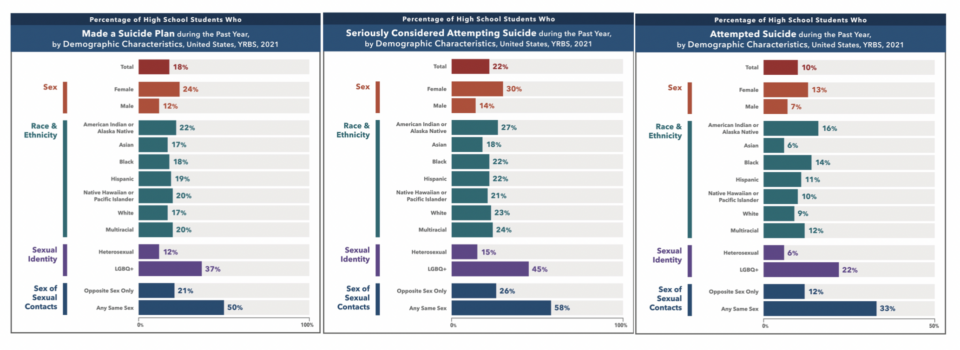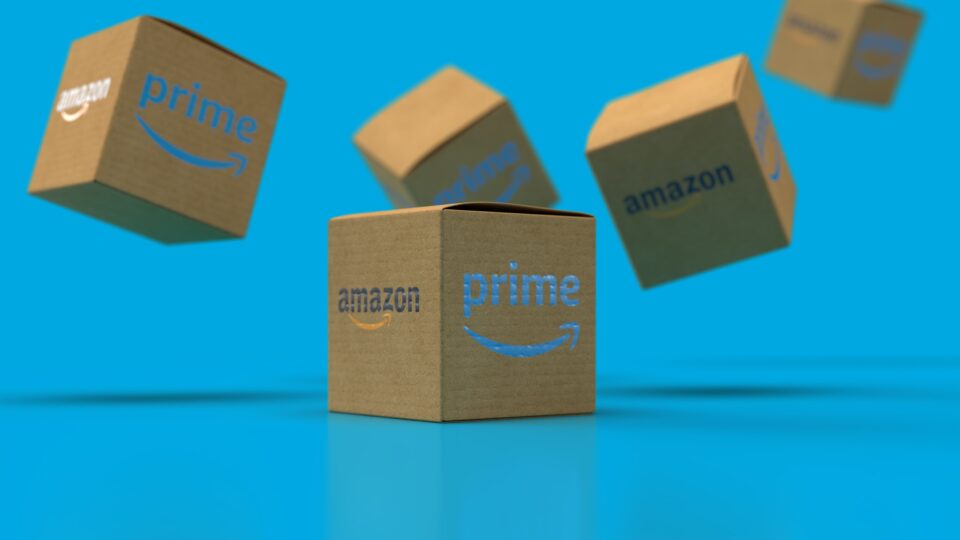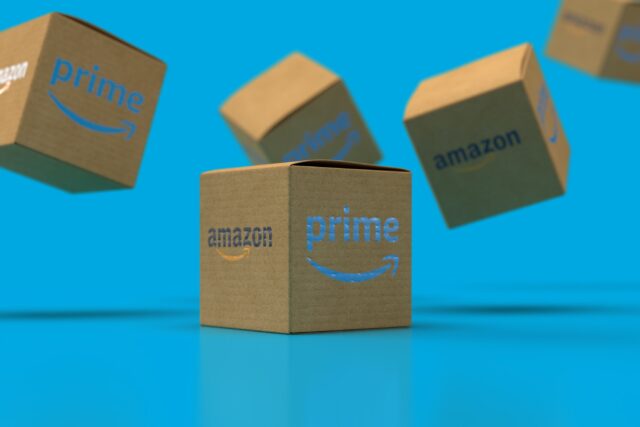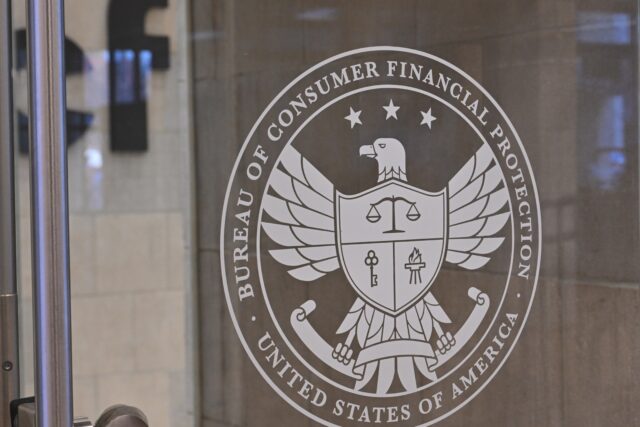Suicide Kits
How Amazon Became Complicit in the Teen Suicide Epidemic
Jessica Grubesic
January 3, 2024
To Amazon, a human life is worth $2.39. That’s the profit the retail giant—which has a market capitalization of nearly $1 trillion—makes from selling each unit of near-pure sodium nitrate, a chemical that is increasingly used to cause death by suicide and for which there is no household use. Lawyers representing four families who have lost children to suicide by sodium nitrate say over 60 additional families have reached out for assistance since they filed the first of two lawsuits in Washington state court in February 2022.
Tragically, those involved in litigation represent only small fraction of the families who have lost loved ones to poisoning by sodium nitrite purchased on Amazon. In December 2021, the New York Times had already identified over 50 victims who used sodium nitrite upon the recommendation of a pro-suicide website that recommended purchasing the chemical and other materials from Amazon.
Lives Cut Short
Content warning: This section contains detailed descriptions of bodies and of death by suicide.
Mikael Scott, 27, had been living with severe anxiety disorder, schizoaffective disorder, bipolar I disorder, and agoraphobia for about ten years. In December 2020, he died by suicide after purchasing sodium nitrite from Amazon. Mikael lived with his mother, a nurse, who grew concerned one night when he began texting her at work about vomiting. Though she offered to return home, Mikael assured her he was feeling better. At the end of her shift, Ruth found Mikael’s body frozen in the fetal position surrounded by vomit, with a red Solo cup containing sodium nitrite solution nearby.
Tyler Muhleman, 17, declined his parents’ invitation to join them for dinner out. Returning home with takeout for him, Tyler’s father was met with his son’s unresponsive body, still warm. Though his mother immediately called 911 and his father performed CPR, Tyler could not be revived by paramedics. The EMTs frantically sought information about reversing sodium nitrite poisoning once they found the bottle of HiMedia sodium nitrite near Tyler, but due to inadequate labeling, they were unsuccessful. Roughly a month after his death, Amazon emailed Tyler’s parents with a request that they review his purchase, asking whether it had met expectations.
Kirstine Jonsson, 16, set up her own Amazon account to purchase sodium nitrite two weeks after first experiencing suicidal ideation, according to her diary. Though Amazon requires account holders to be 18 or older, there is no verification method, and Kristine was able to place an order for sodium nitrite that arrived two days later in a box bearing no last name, only “Kristine.” Six days after that, police found Kristine dead in her mother’s car, which she had driven to a park without her parents’ knowledge.
Ethan McCarthy, 17, bought Loudwolf sodium nitrite using his mother’s Amazon account. When she received the emailed receipt, Ethan’s mother Nikki called Amazon to cancel the order. Despite assurances it would not be fulfilled, Ethan received the package days later. Within two days of receipt, Ethan was dead. Nikki found his body in his bed, cold to the touch. On his desk, next to a computer containing the recently-deleted folder named “my hopes and dreams,” Nikki found the bottle of sodium nitrite Amazon had assured her she would not receive.
Mikael, Tyler, Kristine, and Ethan’s deaths were each tragic in their own right, and they are also each part of a distressing trend. In 2016, suicide became the second-leading cause of death for American teens and young adults, surpassed by accidents and closely followed by homicide. For the 10-14 age group, suicide and traffic accidents have the same death rate. Since then, the teen suicide rate has steadily increased, spiking due to the COVID-19 pandemic: in 2019, 21% of those 18-29 experienced symptoms of depression. By 2021, 43.4% of the same age group experienced the same. That year also saw a 30.7% increase in ER visits for mental health crises for patients between 12 and 17 (from 2019). Nearly 70% of 12-17 year-olds self-reported that the pandemic worsened their mental health. Now, 20% of high schoolers report having suicidal thoughts, while 9% have attempted suicide. These developments are so concerning that in 2021, the American Academy of Pediatrics declared a state of emergency regarding children and adolescents’ mental health.

Graphs and data courtesy of the Centers for Disease Control.
Depression and suicidality are complicated illnesses, but experts agree that a person experiencing suicidal ideation is more likely to attempt to take their own life when they have access to information about methods of doing so and are readily able to obtain the supplies involved. Websites like the pro-suicide forum Mikael, Tyler, Kristine, and Ethan visited encourage users to attempt suicide and provide detailed instructions on various methods. Encouraging suicidal behavior is extremely dangerous; explicitly instructing vulnerable people on obtaining sodium nitrite to make an attempt is even more so.
Sodium nitrite is frequently promoted on the pro-suicide site, with users specifically encouraging despairing posters to purchase the chemical from Amazon, where it is “‘sold without regulation.’” Strikingly, both Amazon and the pro-suicide site defend their assistance in suicides on the grounds that they cannot control the choices of users. These assertions fly in the face of evidence that suicide risk is compounded by access to lethal means and the presence encouragement or pressure to follow through with a plan. More damningly, there is strong correlation between suicide by sodium nitrite and use of the pro-suicide site, and Amazon is the number one vendor of the product.
“People are responsible for their own actions at the end of the day, and there’s not much we can do about that.”
According to a New York Times investigation, the pro-suicide website that Mikael, Tyler, Kristine, Ethan, and thousands of others visited was founded in 2018 after a group with similar purpose was banned from the social media site Reddit. Though the founders use pseudonyms, the Times identified them as Diego Joaquín Galante and Lamarcus Small; the two also actively operate forums for “involuntary celibates” or “incels,” men who believe women are unfairly denying them their right to sex. Incel forums are considered an “emerging extremist threat” by American authorities; an Ohio man was indicted in July 2021 after posting about his plans to murder women. However, it seems Small and Galante consider suicide the “solution” to incel status. Posting under a pseudonym, Galante said of incels considering self-improvement that “not everyone has a way out,” suggesting that death by suicide would be preferable.
The pro-suicide site Galante and Smalls run similarly cloaks itself in the rhetoric of individual choice, purporting to provide users with the information they need to choose whether to remain alive. The website now has tens of thousands of members and garners millions of page views per month—more than four times as many as the National Suicide Prevention Lifeline, according to the Times investigation. Under a pseudonym, Smalls wrote “People are responsible for their own actions at the end of the day, and there’s not much we can do about that.”
Seeking Justice and Accountability Through Litigation
Facing two lawsuits, Amazon has relied on a similar theory of personal responsibility to defend itself. Mikael’s mother—Ruth—and Tyler’s parents are suing Amazon for products liability, specifically for their failures to (1) stop selling sodium nitrite after becoming aware of its lethal uses, (2) restrict sales of the chemical to purchasers who may have a legitimate, non-lethal use for sodium nitrite, and (3) describe the intended use of sodium nitrite and comply with product display and warning labels mandated by its own terms and conditions and the FDA. Separately, Kristine and Ethan’s parents sued Amazon and Loudwolf on three counts: (1) products liability for failing to cease or even limit sales of sodium nitrite and for selling the product to children, (2) negligence for breaching their duties “[t]o exercise reasonable care” and “[t]o not assist or aid in a suicide attempt, and (3) negligent infliction of emotional distress.
In the weeks following Mikael’s death, Ruth contacted Amazon multiple times to inform them of the lethality of sodium nitrite. In response, she received email that included links to customer satisfaction surveys and urged Ruth to keep shopping at Amazon despite “the trouble [she] had with the Sodium Nitrite.” Undeterred, Ruth sought legal representation in the hopes of protecting others like Mikael.
“We began contacting Amazon around April of 2021 to tell them to stop selling the [product],” said co-lead plaintiff’s attorney Naomi Leeds. “It was […] naïve, now looking back, but we thought, ‘Let’s just go to the source and tell them to take it down.’” Indeed, Amazon responded to the letter by disclaiming liability for Mikael’s “intentional misuse” of sodium nitrate. Instead of removing the listing, “Amazon’s lawyers […] told us instead that they deny liability and that they will continue to sell sodium nitrite because they can’t be held liable if somebody uses it for suicide,” said Leeds. They cited a Texas law and precent rejecting liability claims for sellers of products used in suicide, again indicating awareness of the increasing frequency with which sodium nitrite was being “misused” by Amazon customers.
Leeds said they decided to file suit after receiving that response. “At this point, it was just clear that [Amazon’s continued sale of sodium nitrite] couldn’t be chalked up to ignorance or happenstance,” she said. “This was a counseled decision.”
When Tyler’s case was joined with Michael’s, and when Kristine and Ethan’s parents filed suit, Amazon asserted near-identical defenses disclaiming liability for their deaths by suicide. Such denials are particularly outrageous in light of the fact that Tyler purchased sodium nitrite nearly six months after Ruth informed Amazon of Mikeal’s tragic death, and 12 days after she requested, through counsel, that Amazon stop selling the substance. Kristine and Ethan purchased the product even later. Unlike Amazon, other online retailers had voluntarily ceased sodium nitrite months or years earlier, concerned about the product’s potential to be used in suicides.
Indeed, since 2019, experts have warned of increasing incidence of suicide by sodium nitrite, which mirrors its popularity in the recommendations of the pro-suicide site. According to attorneys for the families of four people who died after purchasing the chemical from Amazon, Amazon itself was aware higher-than-normal demand for sodium nitrite among personal (i.e., not clinical or commercial) purchasers.
Lawmakers in Australia, Germany, and Italy have restricted access to the pro-suicide website. Officials in other countries have considered acting, but ultimately declined to investigate because they consider the website, which has a U.S. business address, to fall under American jurisdiction. Unfortunately, American regulators and tech companies have failed or simply refused to act. For example, Google and Microsoft rejected Australian officials’ request that they exclude the site from search results. In January 2022, Congress sent a letter to Amazon requesting details on their response to increasing instance of suicide by sodium nitrite. Amazon replied with condolences but, according to lawmakers interviewed by the New York Times, “failed to answer many of [the] most critical questions.”

Image provided by Pixabay, uploaded by Bastian Riccardi (@shutter_speed)
Amazon’s Business Model Increases Suicide Risk
Because there is no non-lethal household use for sodium nitrite in such concentrations, family members of people who have died by suicide using sodium nitrite have lobbied for Amazon to restrict sales of the product (which Amazon itself acknowledges should be used only in institutional or industrial settings). Grieving, they posted one-star reviews and begged Amazon to remove the listing. Instead, Amazon removed the reviews. If Amazon had heeded Ruth’s exhortation to stop selling sodium nitrite, others—including Tyler, Kristine, and Ethan—would likely still be alive.
Amazon’s lawyers claim that the removal of one-star reviews containing the word “suicide” demonstrates the company’s “intent to discourage customers from purchasing sodium nitrite as a method for suicide.” Yet the company’s practices tell a different story.
Almost two-thirds of people who die by suicide perish on their first attempt. Interviews of survivors and studies of the risk of repeated attempts at suicide indicate that people who survive their attempts are at a low risk of dying by suicide later. People who attempt suicide by sodium nitrate, though, often succeed. The chemical, which can be used as an antidote to cyanide poisoning and to preserve meat, is highly lethal even in low concentrations. And the speed with which Amazon fulfils orders for the product leaves little time for the purchaser to change his or her mind (suicidal ideation is rarely constant).
A seminal study found that 72% of people who begin to plan their deaths by suicide end up making a suicide attempt. Moreover, a recent study concluded that the risk of suicide can increase by as much as 30% when specific methods of suicide are disclosed. Known as the Werther effect, the phenomenon of rising suicide rates following a widely discussed death by suicide, has been observed since the 18th Century. Experts have theorized that well-publicized deaths by suicide and popular media containing deaths by suicide function as a suggestion that increases people’s risk of attempting suicide.
Amazon went further than publishing information about deaths by suicide by using its surveillance advertising abilities to push targeted ads for sodium nitrite to people experiencing suicidal ideation. Specifically, Amazon tracked people who viewed the sodium nitrite product page but did not make a purchase using cookies, then pushed targeted ads for the substance to those people even on other websites. Going further, Amazon sent emails urging people who had added the product to their carts but not ordered it to complete the transaction. By continually drawing their attention to a substance increasingly used in suicide attempts, Amazon likely exacerbated the risk of suicide among people who were already extremely vulnerable: those who are already experiencing suicidal ideation and beginning to make plans for attempts.
Beyond selling sodium nitrite, Amazon recommended products that make death upon consumption more certain. Viewers of sodium nitrite listings saw suggestions that they also purchase Tagamet (an antacid that can prevent vomiting), personal scales to measure sodium nitrite dosage, and the Amazon edition of the Peaceful Pill Handbook (which provides instructions for suicide by sodium nitrite and recommends that users purchase it from Amazon). Tagamet inhibits potentially life-saving vomiting, and the scale ensures users take the correct “dose” of sodium nitrite and do not inadvertently survive their suicide attempt. In the words of Leeds, “There’s something to it when a defendant is so hellbent on continuing down a course of conduct that they have full control of […] when they know people are being hurt.”
By continually drawing their attention to a substance increasingly used in suicide attempts, Amazon likely exacerbated the risk of suicide among people who were already extremely vulnerable
Moreover, despite neglecting to mention the only known antidote to sodium nitrite ingestion—methylene blue—in its product listings, Amazon allowed manufactures of methylene blue to purchase targeted ads on pages listing sodium nitrite for sale, seeming to recognize that people were ingesting sodium nitrite. Methylene blue is not used in curing meat, which is the only possible personal use for sodium nitrite. Therefore, according to lawyers, placing targeted ads for the antidote to sodium nitrite constitutes “an acknowledgement [by Amazon] that Sodium Nitrite is ingested,” that triggered a duty to remove the product.
Course of Litigation
Unlike other products used in suicide attempts, there is no household use for concentrated sodium nitrite. “It’s a highly lethal poison,” said Leeds. “When mixed with water and drunk, you’re dead in 20 minutes.” Accordingly, the families of Mikael and Tyler and of Kristine and Ethan have sued Amazon in two cases. Both allege that Amazon bears liability for selling a harmful product without adequate safety warnings and for negligently inflicting emotional distress on surviving family members. Kristine and Ethan’s families also claim that the company was negligent in supplying sodium nitrite. Amazon’s defense is that there can be no tort liability for a product that is used incorrectly; rather, such liability must be predicated on product defect. However, as mentioned, there is no safe household use for sodium nitrite in the concentration the plaintiffs’ children purchased (over 99% pure). Even diluted sodium nitrite can be extremely dangerous. Accordingly, the FDA requires the product to bear warning labels and does not seem to have contemplated the sale of near-pure sodium nitrite. The regulation requires retail packaging to “bear adequate directions for use to provide a final food product” (emphasis added) and to “bear the statement ‘Keep out of the reach of children.’” Often, manufacturers dye low-concentration sodium nitrite pink to ensure amateur meat-curers do not confuse it with table salt. Neither the HiMedia nor the Loudwolf sodium nitrite containers bore the required label, and there were no warnings at all on their Amazon product pages. The absence of the required warning is thus foundational to the plaintiffs’ products liability claims.
Amazon’s defense is that there can be no tort liability for a product that is used incorrectly; rather, such liability must be predicated on product defect.
Beyond disclaiming liability for the product, Amazon also rejects liability for the results of Mikael, Tyler, Ethan, and Kristine’s deaths. Liability fors another’s suicide, they claim, can only result when one is the proximate cause of the mental state that led to the suicide. Amazon argues that they can only be held liable for customers’ deaths by suicide if Amazon’s actions directly and necessarily cause the person to suffer from an illness that leads them to take their own life. Relying on motions practice—which is common among corporate law firms seeking to slow the legal process—Amazon’s lawyers have insisted the plaintiffs have no case and have repeatedly sought dismissal. As Leeds explained, litigating against “corporate lawyers are going to look for every single scrap they can find in terms of motion practice,” is difficult for firms with fewer attorneys and resources. This is because corporate litigants will often request dismissal under multiple rules of civil procedure. In a separate case, Leeds’s firm successfully argued against those practices, with the judge writing, “Allowing these arguments in a subsequent motion would encourage defendants to raise only one set of arguments at a time, hoping to find one that succeeded. This would give defendants multiple chances to dismiss a complaint on different grounds. Such gamesmanship would be unfair to plaintiffs. It would also be inefficient. Two rounds of briefing and arguments are less cost-effective than one.” The ruling is not precedential; therefore, repetitive motions practice is still widely tolerated and thus widely practiced.
Indeed, instead of vigorously arguing against the substance of the plaintiffs’ claims, Amazon has sought dismissal on technicalities. In particular, Amazon insists that the products liability claim is a “novel theory of duty” which they claim requires dismissal under Washington state law. Judges have disagreed, prompting Amazon to file additional motions that, according to Leeds, are duplicative and intended to preclude plaintiffs from taking action by draining their resources and those of their attorneys. “We do see certain cases being handled differently” Leeds said. “One class of defendants will do the thing that will make them look best […] and then one class of defendants will delay, delay, delay and throw as much money at the problem as possible. When it comes to these big law firms working for someone like Amazon, it seems like it’s been the latter.” The strategy might not make sense for corporations, either. Though they may save money in the short term, Leeds noted, “companies that admit to liability and then the only thing at trial is damages, they get off looking pretty good, and the damages usually awarded are not that high.”
Though litigation is ongoing, Amazon does not appear willing to admit liability—or to take any responsibility at all—even to preserve its reputation. Though the online retailer has since placed additional restrictions on purchasing highly concentrated sodium nitrite, the product remains available to those with business accounts. If Amazon had heeded Ruth’s warnings and those of other grieving family members and made this change earlier, Tyler, Kristine, Ethan, and untold others might still be alive. Instead, in Leeds’s view, they “doubled down,” insisting that they did nothing wrong.
“What I will say is if we do get to trial, and we are in front of a jury, and this is what the procedural history looks like, they’re kind of shooting themselves in the foot,” Leeds said, adding that when companies deny legal wrongdoing in the face of tragedies, “that’s the shit that makes juries mad.”
If you or someone you know is in crisis, call or text the 24-hour Suicide Crisis Lifeline at 988, the National Suicide Prevention Lifeline at 800-273-8255, text HOME to 741741, or visit SpeakingOfSuicide.com/resources for additional resources.








